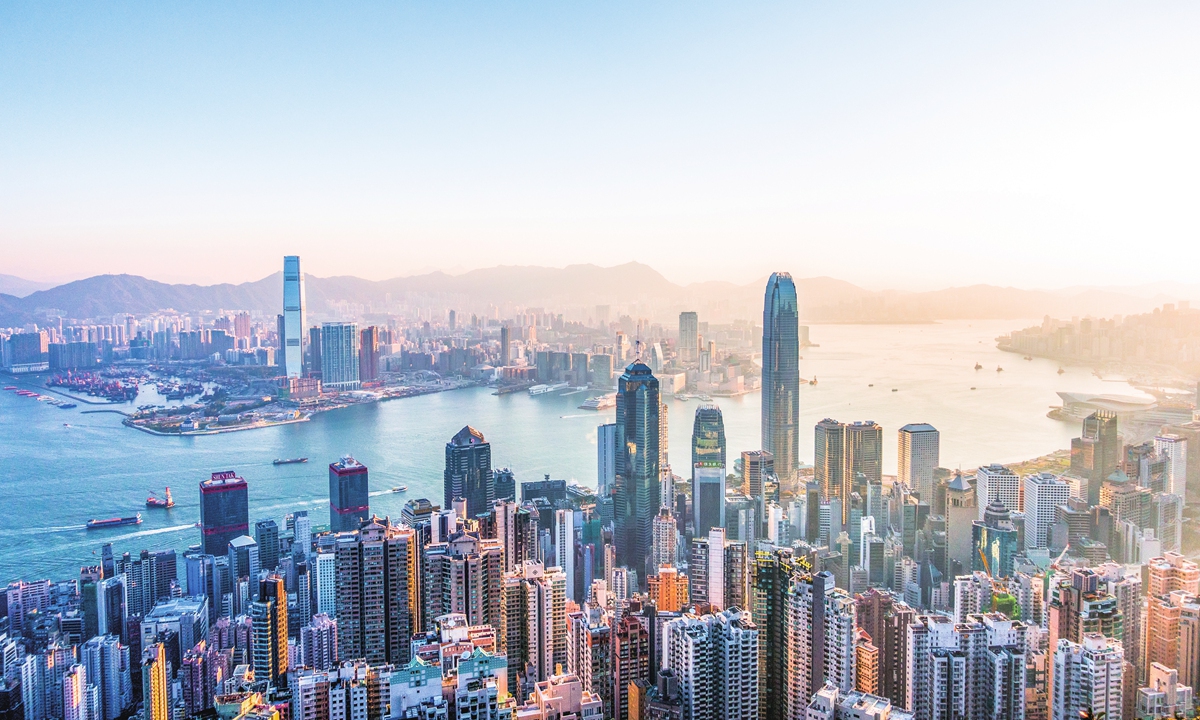Travel
Immigration authorities extend Chinese mainland residents’ business travel in Hong Kong, Macao to 14 days

A snapshot of Hong Kong Photo: VCG
China’s immigration authorities announced that, starting from May 6, Chinese mainland residents who travel to Hong Kong and Macao on business trips will be able to stay for up to 14 days per visit, a significant increase from the previous limit of seven days
The extension, which will greatly facilitate business exchange between Chinese mainland and the two regions, is included in an array of new measures to streamline the immigration process and facilitate international exchange, advancing the country’s high-level opening up.
The new measures also include easing procedures for issuing passport and facilitating easier travel for Chinese mainland residents to visit Hong Kong and Macao, which allow Chinese mainland residents to apply for business travel permits to Hong Kong and Macao at immigration bureaus countrywide, rather than only at registered locations before.
Experts noted that the new measures would help boost the economies of Hong Kong and Macao, creating new business opportunities and inject vitality into their development.
Facilitating travel for the mainland residents to Hong Kong and Macao will stimulate economic activity and increase demand across tourism, retail, hotels and dining sectors, driving economic growth of Hong Kong and Macao, Liang Haiming, Chairman of the China Silk Road iValley Research Institute, a Hong Kong based research institute, told the Global Times on Sunday.
The initiatives focus particularly on simplifying travel for business professionals and talent from the mainland, which is expected to generate more business opportunities in Hong Kong and Macao, as well as enhancing the local talent pool and promoting cross-regional knowledge exchange, said Liang.
“Chinese mainland-based skilled workers may bring new momentum into innovation and development of Hong Kong and Macao,” Liang said.
More business people and skilled workers will likely drive local commercial, and cultural exchanges with the international community, which is anticipated to increase foreign investment, boost foreign trade and more, Liang noted.
The new measures will allow multiple entries to Hong Kong and Macao for skilled talent from Beijing and Shanghai, granting them exit-entry permits valid for one to five years with each stay not exceeding 30 days. The new policies also include issuing multiple-entry visas to Macao for various activities such as exhibitions, medical treatment, and cultural performances.
Additionally, the National Immigration Administration will pilot online applications for replacing or reissuing passports and exit-entry permits for traveling to and from Hong Kong and Macao in 20 mainland cities including Beijing, Shanghai, and Guangzhou.
With the further integration of the Guangdong-Hong Kong-Macao Greater Bay Area, and the launch of new travel policies, interactions among residents of the three areas are becoming increasingly convenient, leading to closer economic ties.
For instance, the Hong Kong-Zhuhai-Macao Bridge border control announced that, as of 4 pm on Saturday, the bridge has recorded over 10 million vehicle runs.










